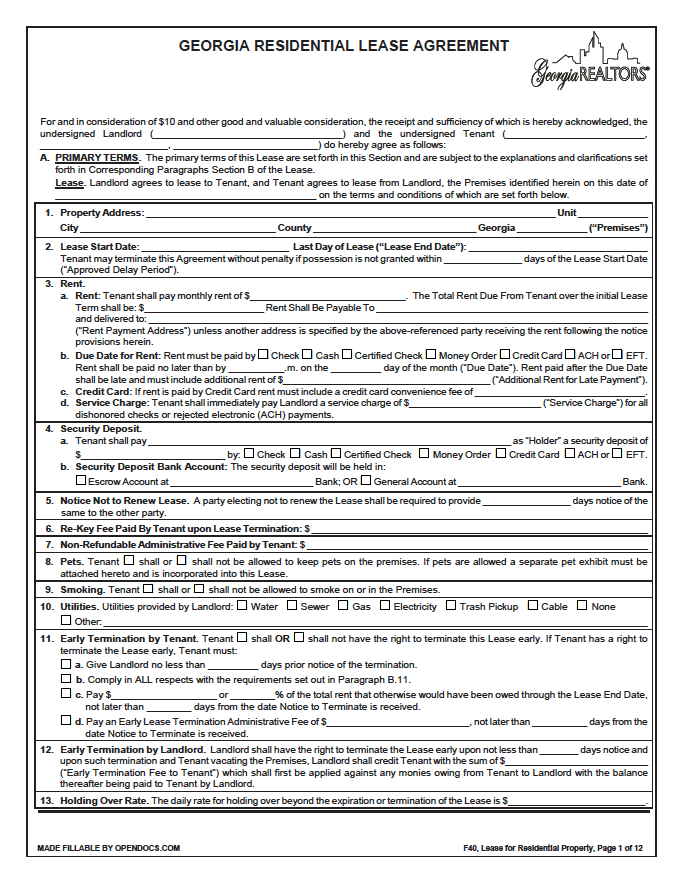Georgia Standard Residential Lease Agreement
The Georgia Standard Residential Lease Agreement is a legally binding contract that used for the rental of non-commercial property. In this context, non-commercial property is generally defined as a house, apartment or similar dwelling. Once the landlord (or property manager) and tenant sign the agreement for the rental of any such property, they must comply with all the terms included in it. Although they can negotiate some of the conditions, § 44-7-2 prevents the parties from taking steps to avoid certain legal rights and responsibilities, such as those that relate to repairs, improvements, and security deposits.
Tenant Screening: Georgia Rental Application
State Laws
Laws: §§ 44-7-1 to 44-7-119 “Landlord and Tenant”
Maximum Security Deposit: None.
Returning Security Deposits (§ 44-7-34): The landlord has thirty (30) days in which to return a security deposit after regaining possession of the dwelling. If any funds from the security deposit have been used to cover costs for anything other than routine maintenance and repairs, the landlord must provide the tenant with a detailed list of damages and costs, along with any remaining funds.
Right to Inspection (§ 44-7-33): Before the tenant gives the landlord a security deposit, the landlord must provide a statement of existing damages. The tenant then has the right to inspect the dwelling to ensure the list is accurate. Both parties must sign off on the completed statement.
The landlord also has a right to inspect the dwelling within three (3) days after the tenancy has terminated or the dwelling vacated. Based on the inspection, the landlord can create a list of damages (if any). The tenant then has five (5) days in which to review the list and inspect the dwelling to verify the claim for damages. If the landlord and tenant conduct this inspection together and agree as to specified damages, they must both sign off on the statement. A tenant disputing the claim for damages based on the inspection may refuse to sign the list. In this case, a written statement must be provided to the landlord. The landlord must then return the funds as noted above.
